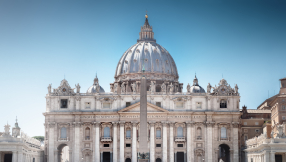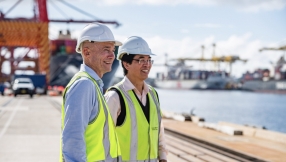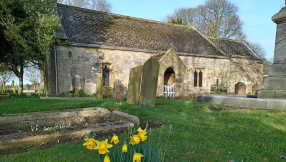Christians unsure of religion's future in Cuba
Voice of the Martyrs (VOM) USA director Tom White, for one, is not impressed with Castro's likely successor, his 76-year-old brother Raul.
"Castro's brother, Raul, is the one who would shoot prisoners in the head with a 45 pistol if they weren't altogether dead," White said to Mission Network News. "So that's the kind of person, perhaps, who would be inheriting the transfer of power there."
White was captured by Cuban authorities in the 1980s after the plane, from which he was dropping Christian leaflets, crash-landed on the island. He was tortured and sentenced to 24 years, but served only 17 months before he was released. International pressure and a personal appeal from Mother Theresa to Fidel Castro helped secure White's freedom.
In addition to Raul, the VOM director is not thrilled about Cuba's close ties with Venezuela's Hugo Chavez. He called Chavez the "sugar daddy" of Cuba and noted that the relationship will make it difficult to move towards democracy.
But the former victim of Cuba believes that for the most part, Cuban Christians will be left alone to worship as they have been, even if no improvements take place under the new leader.
"In my opinion, it would cause a total revolution on the entire island if they started smashing up the poor Christians," White commented.
Cuba legally bans house churches, but thousands of them openly hold services and activities without harassment.
According to WorldServe Ministries, an organisation serving the persecuted church worldwide, there were only 1,100 churches and houses on the island nation in 1991 - the year when the Congressional Communist Party voted to change Cuba's constitutional status from atheist to secular state. Now, there are more than 16,000 house churches, reported VOM, which has worked in Cuba since 1993.
Pope Benedict also expressed concerns over the future of Christians in Cuba.
"At times, some Christian communities feel overwhelmed by the difficulties, by the lack of resources, the indifference and even distrust, that can be discouraging," he said on Thursday in a message to Cuba's Catholic bishops.
Southern Baptists echoed White's sentiment, saying that they look forward to continuing their work under the new leader.
"The Cuban Baptist conventions are strong with a healthy focus on sharing the Good News of Jesus with all Cubans," one Baptist worker said, according to Baptist Press (BP). "Regardless of changes, Cuban Baptists are capable of continuing to expand their influence across the island.
"The one thing we ask is that all Christians pray for them as they move ahead with their plans. Southern Baptists will continue to assist Cuban Baptists as they request and as we are able."
According to a report, the enrollment of the Baptist Seminary in Havana rose from 54 resident students in 1999 to 610 students in 2007 including commuter programmes and extension classes last year, BP highlighted.
Cuba's newly elected National Assembly will meet for the first time this Sunday and will decide who will be the country's next commander-in-chief. Raul, who has been acting head of state since Fidel fell ill in 2006, is expected to be announced Castro's successor.
VOM's White urged prayer for the country's believers.
"Pray that [Christians] continue to exhibit the same kind of courage in their poverty. They knock the walls out of their houses and convert them into little house churches. Pray that they continue to be inspired and have creativity."













